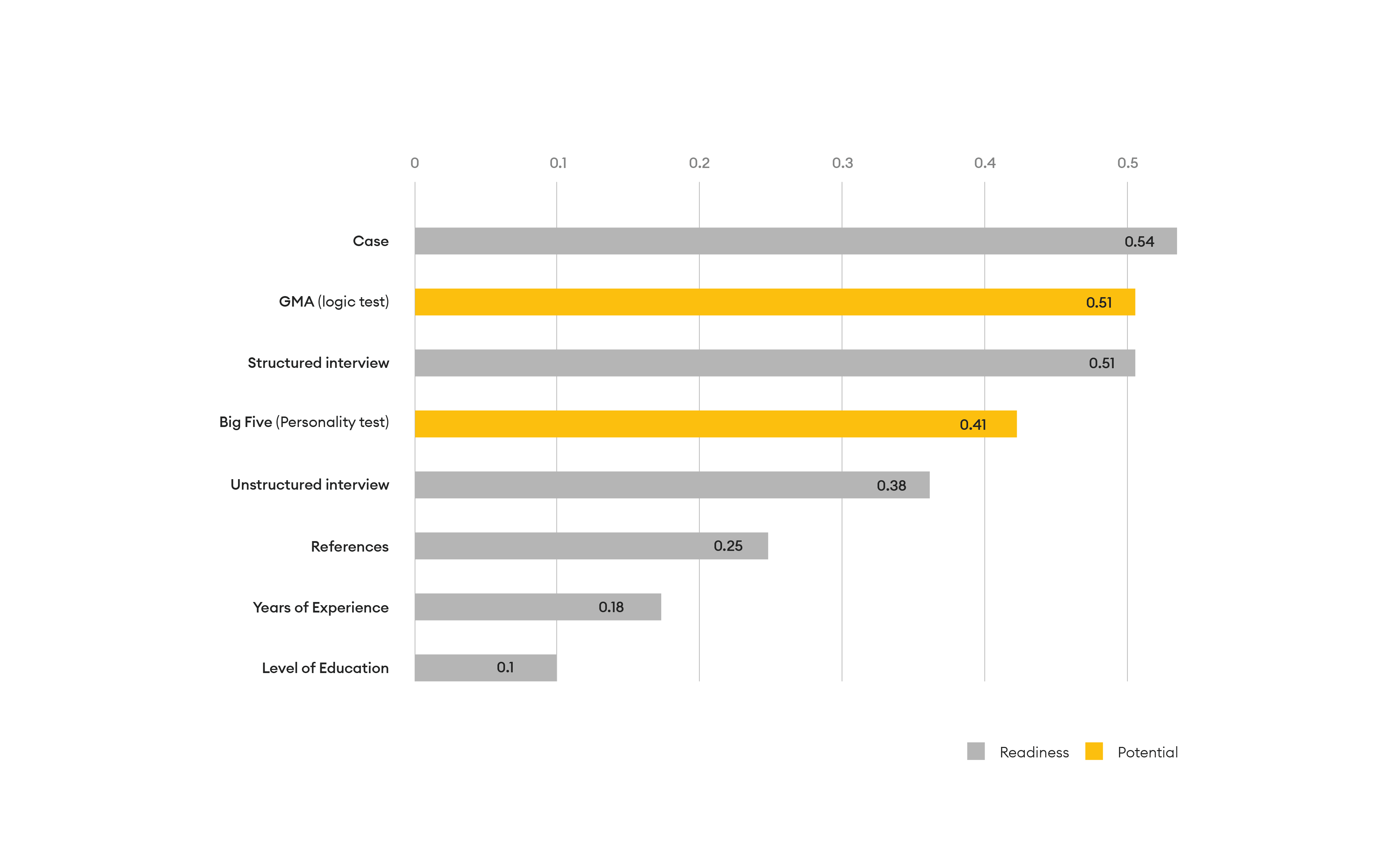But before we start looking at what we believe is the ideal recruitment process, let’s start with what research tells us. This will give you insight into the science behind any recruitment process, and give you a roadmap of how you can align yourself with the methods most backed by research.
Education and past experience were found to have some of the lowest job performance predictability
Look at what actually predicts job success.
Firstly, you need to consider what selection methods you want to utilize, and the reason for using them. If you are unsure about the utility of your methods, allow me to outline a well-known paper in organizational psychology that gives insight into that.
Hunter and Schmidt (1998; recreated in 2016 but not published yet) conducted a meta-analysis and examined over 85 years of research findings in the field of personnel selection, with regards to the methods used in recruitment. They concluded that out of the 19 different methods they examined, all were not equally effective at predicting job performance. In fact, some traditionally used methods were quite poor at predicting job performance. The picture on next page outlines the results, on a scale of 0 to 1 (with 0 being not predictive of job performance at all and 1 being completely predictive, as it is a correlation scale).

Education and past experience
What is really interesting is to look at is education and past experience (the two things you normally see in a CV).
CVs are to date the most commonly used method to screen applicants, even though science tells us that they actually aren’t that good at predicting job success.
The highest predictability was from work sample tests, where the candidate actually does the job for a certain period of time (and thus it is fairly difficult to let candidates do them). Second best is General Mental Ability tests (usually measured by conducting logic tests), and structured interviews. It was also found that combining logic tests with personality tests increased predictability of job performance to up to 0.65 on the scale shown above (an up to 27% increase).
Now that you have this information, consider how your selection methods fare in relation to these findings and what your reasoning is for using them. It is important that you can motivate your selection methods, whatever they may be, instead of using what is just the “norm”.





